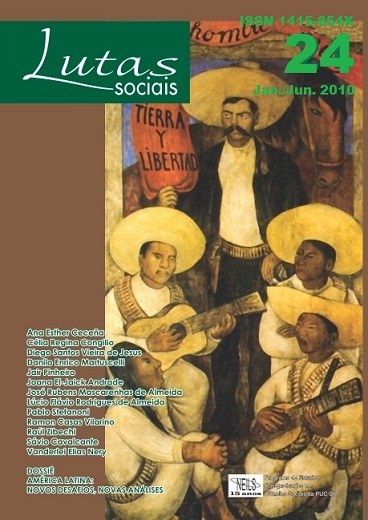Diretas Já: a busca pela democracia e seus limites
DOI:
https://doi.org/10.23925/ls.v0i24.18836Palavras-chave:
Direct Elections Now. State. Democracy. Marxist theory.Resumo
O artigo aborda três textos que tratam da campanha Diretas Já. Começando com um pequenocomício em Goiânia no início de 1983, a campanha cresceu ao longo deste ano, chegando ater mais de um milhão de pessoas no último comício em janeiro de 1984 na capital paulista. Acampanha polarizou a sociedade brasileira, pois propunha eleições diretas para Presidente daRepública, após um longo período de ditadura civil-militar. O governo tentava garantir que opróximo presidente fosse eleito via colégio eleitoral, enquanto as oposições buscavam rompercom tal processo.Nossa análise, partindo de uma teoria marxista do Estado, busca demonstrar o compromissode tais obras com a idéia de ampliação dos espaços democráticos e da cidadania no Brasil eos limites que resultaram de tais escolhas.Palavras-chave: Diretas Já. Estado. Democracia. Teoria marxista.Métricas
Carregando Métricas ...
Downloads
Publicado
2010-06-30
Como Citar
Nery, V. E. (2010). Diretas Já: a busca pela democracia e seus limites. Lutas Sociais, (24), 70–77. https://doi.org/10.23925/ls.v0i24.18836
Edição
Seção
Artigos
Licença
Matérias assinadas não expressam necessariamente a posição do coletivo da revista e são de exclusiva responsabilidade do(a)s respectivo(a)s autore(a)s.
Ao enviar seus textos, o(a)s autore(a)s cedem seus direitos à Lutas Sociais, que autoriza, com prévia permissão do Comitê Editorial, a reprodução das publicações, desde que conste o crédito de referência.



